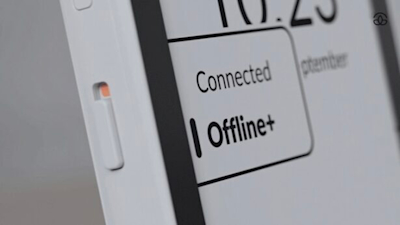
Cell phones without internet access, why should we use them?
“It’s not that life is short. It’s that we waste a lot of it.”
~ Seneca
Sometime around the year 49 AD, a Roman Stoic philosopher, Seneca wrote a moral essay, On the Shortness of Life. In the essay, he outlined the idea that nature gives us enough time to accomplish what is really important and that each individual must allocate their time properly. In general, he points out that time is best spent by living in the present moment, in pursuit of an intentional and purposeful life.
These days, almost everybody owns at least one smartphone, not to mention, other digital devices such as tablets and laptops. And according to published research, we spend a substantial part of our day interacting with those devices. Adults, on average, spend in excess of 11 hours per day staring at screens.[1]
Yes, part of this time is probably necessary, and much of the time spent staring at screens is most likely work or study related, however, according to a recent survey by WhistleOut, a search engine which analyzes the telecommunications landscape, the average person spends approximately three (3) hours of their day interacting with their smartphone. Three hours per day may not seem like much, but over the course of a lifetime, that adds up to 76,500 hours of screen time, just staring at a smartphone, which works out to 8.74 years of your life. This means that the average person will spend almost 9 years of their life on their cell phone! How much time per day are you spending scrolling through your newsfeed, liking, sharing or steaming? [2]
Are we using our phones? Or are they using us?
These days, the average person doesn’t get to decide whether they want a smartphone or an email account or a laptop/PC. Those items have become the default instruments which we all need to live a functional life. Or have they?
The number of smartphones is growing significantly every year, and unless you live under a rock, you definitely noticed that cell phone companies are competing very hard with each other to bring you an updated version of the time-syphoning gadget, seemingly every few months. They promise larger screens, improved cameras and more connectivity!
Smartphones will continue to exist alongside feature phones, but perhaps, you might belong on the other side of the divide without even realizing it.
Here are just a few of the benefits of switching back to a basic feature phone from a classic smartphone.
Take back your privacy
The nature of today’s technology is built around the concept of free access in exchange for your data. As the saying goes, “if you’re not paying for the service, YOU are the service.” With all of that data collection, in addition to public and private surveillance, true privacy is becoming hard and harder to find. Between Big Tech collecting a ton of data about where you go, and what you do and apps requesting access to more and more information, in addition to the growing number of reports about security breaches and malware, it’s no secret consumers are increasingly growing concerned about how their data is being aggregated, stored, and exploited for profit. A minimalist, feature phone, like the Mudita Pure offers a simple way to stop these worries in their tracks.
Mudita even developed its own Open-Source operating system (MuditaOS) that gets digitally signed updates to make sure no one can alter it, which is a unique feature for a classic phone.
Radiation Concerns
Although many smartphone users may not think twice about their smartphone’s SAR value, and the mainstream cell phone industry would like to dismiss any links between smartphones and the effects of electromagnetic radiation, the fact remains that the U.S. government has placed a limit on the specific absorption rate (SAR) level of cell phones. The SAR limit is essentially a maximum amount of radiation which can come out of any cell phone. The Federal Communications Commission (FCC) has set the SAR standard at 1.6 watts per kilogram averaged over 1 gram of tissue. However, according to tests conducted by the Chicago Tribune, many smartphones exceed the legal limit and now the FCC is investigating.[3]
Mudita Pure is designed to reduce SAR (Specific Absorption Rate) value as much as possible. It's equipped with a custom-developed antenna, using patented technology, which has been determined to be the lowest HEAD SAR value among all phones on the market.
To check how your phone compares to the Mudita Pure, visit the SAR CHECKER page on the Mudita website.
The Coolness factor
Back in the late 90s & early 2000s, feature phones were the sign that you were cool, however it appears as if feature phones are back on top, as a hipster, anti-tech statement. The smartphone’s ubiquity has made it somewhat boring and rather oppressive. Afterall, what's cooler than doing what everyone else is doing? NOT doing it, of course! While everyone around you has a smartphone seemingly glued to their hand, it only makes sense that the absolute coolest members of society are the ones who are living in the present moment, in pursuit of an intentional and purposeful life.
Basic phones are making a real comeback as people make the conscious choice to simplify their lives by disconnecting from the endless torrent of notifications, limiting distractions, and escaping the never-ending news cycle. Are feature phones the new vinyl?
Save money
The price difference between smartphones and feature phones might be the most attractive aspect of choosing a classic phone over a smartphone. Some models of high-end smartphones can cost upwards of $1000 without taking the monthly service costs into account. Some smartphone users can pay thousands of dollars per year for their plan, data, and phone. In fact, in 2018, Americans aged 25-64, paid, on average, $114 per month for cell phone service. That's a staggering annual cost of $1,368 per person, just for cell service![4]
Feature phones cost much less up front and basic phone plans are significantly less expensive.
Durability
According to IBISWorld, a trusted industry analyst, the smartphone repair industry is expected to take in over 4 billion dollars in 2021, in the U.S. alone.[5] Smartphones are incredibly sensitive devices which are very intricately designed. They also have large, glass screens covering at the majority of their body. Just in 2018, Americans spent over $3 billion fixing their smartphone screens. Many of them (including the iPhone) are not even designed to be opened up by the consumer. Globally, smartphone users replace their device every 21 months.[6][7]
Feature phones are often less complex, more durable, and when they do break, are much more easily repaired at a cost which is significantly lower than conventional smartphone repair.
Disconnectedness
The more we become immersed in the digital lifestyle, the more we notice the breakdown of social connections and community ties. As our world becomes more connected over the internet, new forms of social media take up more and more time in our everyday lives.
New emails flood our smartphones within seconds of being sent, and we feel less need to physically interact with the world around us. Our smartphones have quickly become the center of our everyday lives and somehow replaced the need for real, meaningful human interaction with uninspired social media posts and shallow text messages. However now, people are deliberating if the convenience of always being connected to everything is all it’s cracked up to be. Perhaps less is more?
The beauty of a feature phone is that they actually help us be more connected. Imagine actually talking to your friends and family instead of just tweeting about how much you like each other and tagging each other in posts?
One such device that embodies this principle is our new minimal phone, Mudita Kompakt. This phone allows users to switch off connections and notifications, giving you the control to be connected when you want and offline when you don't. It's the best of both worlds because you're connected on your terms, instead of always being online. By using Mudita Kompakt, you can reclaim your time and focus, reducing the constant barrage of notifications and apps, and fostering a more intentional and present lifestyle.
Have we missed anything? What are some of the reasons why you plan to switch or have you already taken the plunge?
Related stories

Mindful tech use & the key to a healthier, happier brain
Overstimulation from screens is reshaping your brain, it harder to focus & stress more. Learn practical ways to reset, regain clarity & use tech more mindfully.

What is a digital detox?
Discover what a digital detox is, why it matters, and how unplugging can boost sleep, reduce stress, and help you reconnect with what really matters.

10 Simple Steps to Sleep Better and Improve Sleep Quality
Struggling with sleep? Discover 10 simple, science-backed tips to improve sleep quality, build better habits, and wake up refreshed every morning.
If you'd like to receive the best stories from our blog, keep up to date with our progress and get notified about our product releases and special discounts.